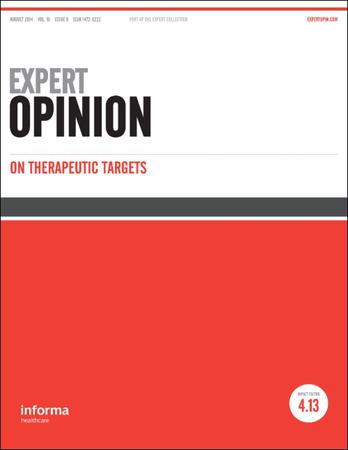The role of Nrf2 in immune cells and inflammatory autoimmune diseases: a comprehensive review.
IF 4.4
2区 医学
Q1 PHARMACOLOGY & PHARMACY
引用次数: 0
Abstract
INTRODUCTION Nrf2 regulates mild stress, chronic inflammation, and metabolic changes by regulating different immune cells via downstream signaling. Collection of information about the role of Nrf2 in inflammatory autoimmune diseases will better understand the therapeutic potential of targeting Nrf2 in these diseases. AREAS COVERED In this review, we comprehensively discussed biological function of Nrf2 in different immune cells, including Nrf2 preventing oxidative tissue injury, affecting apoptosis of immune cells and inflammatory cytokine production. Moreover, we discussed the role of Nrf2 in the development of inflammatory autoimmune diseases. EXPERT OPINION Nrf2 binds to downstream signaling molecules and then provides durable protection against different cellular and organ stress. It has emerged as an important target for inflammatory autoimmune diseases. Development of Nrf2 modulator drugs needs to consider factors such as target specificity, short/long term safety, disease indication identification, and the extent of variation in Nrf2 activity. We carefully discussed the dual role of Nrf2 in some diseases, which helps to better target Nrf2 in the future.Nrf2 在免疫细胞和炎症性自身免疫疾病中的作用:全面综述。
简介Nrf2通过下游信号调节不同的免疫细胞,从而调节轻度应激、慢性炎症和代谢变化。收集有关 Nrf2 在炎症性自身免疫性疾病中的作用的信息将有助于更好地了解靶向 Nrf2 在这些疾病中的治疗潜力。此外,我们还讨论了 Nrf2 在炎症性自身免疫疾病发展中的作用。它已成为炎症性自身免疫疾病的一个重要靶点。开发 Nrf2 调节剂药物需要考虑靶点特异性、短期/长期安全性、疾病适应症的确定以及 Nrf2 活性的变化程度等因素。我们仔细讨论了 Nrf2 在一些疾病中的双重作用,这有助于未来更好地靶向 Nrf2。
本文章由计算机程序翻译,如有差异,请以英文原文为准。
求助全文
约1分钟内获得全文
求助全文
来源期刊
CiteScore
8.90
自引率
1.70%
发文量
58
审稿时长
3 months
期刊介绍:
The journal evaluates molecules, signalling pathways, receptors and other therapeutic targets and their potential as candidates for drug development. Articles in this journal focus on the molecular level and early preclinical studies. Articles should not include clinical information including specific drugs and clinical trials.
The Editors welcome:
Reviews covering novel disease targets at the molecular level and information on early preclinical studies and their implications for future drug development.
Articles should not include clinical information including specific drugs and clinical trials.
Original research papers reporting results of target selection and validation studies and basic mechanism of action studies for investigative and marketed drugs.
The audience consists of scientists, managers and decision makers in the pharmaceutical industry, academic researchers working in the field of molecular medicine and others closely involved in R&D.

 求助内容:
求助内容: 应助结果提醒方式:
应助结果提醒方式:


